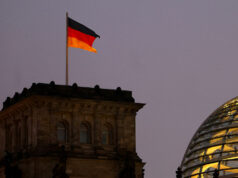ICC cites crimes against humanity in drug war
THERE IS reasonable basis to believe that crimes against humanity had been committed in connection with President Rodrigo R. Duterte’s deadly war on drugs, according to the International Criminal Court’s (ICC) chief prosecutor.
Those crimes including murder, torture, infliction of serious physical injury and mental harm took place between July 1, 2016 and March 16, 2019, Fatou Bensouda’s office said in its annual report released on Tuesday.
The ICC prosecutor started a preliminary probe into the killings of thousands of suspected drug users and peddlers in the Philippines in February 2018. Some of these were killed by police for allegedly resisting arrest or gunned down by law enforcers disguised as vigilantes.
A final decision on a formal ICC probe could come in the first half of next year, according to the report.
The presidential palace dismissed the report, saying the ICC does not have jurisdiction over the Philippines after it withdrew from the body last year.
“We don’t recognize the jurisdiction and decision of the ICC,” presidential spokesman Harry L. Roque told an online news briefing in Filipino.
He also said the ICC won’t waste the time of its officials on cases that won’t prosper because there is no cooperation from the country being investigated.
The report cited allegations that some people had been subject to “serious ill-treatment and abuses” before being killed by authorities and other unidentified assailants.
Most of the victims of the alleged crimes had been suspected drug pushers from poor neighborhoods, it said.
The ICC said there had been a “limited number” of investigations and prosecutions initiated in connection to the war on drugs. The prosecutor noted that one case had led to the conviction of three police officers in connection to the killing of a minor in 2018.
Progressive groups welcomed the ICC report.
‘RAY OF HOPE’
“With the recent intensified red-tagging, arrests and extrajudicial killings of critics of the administration and the political opposition, we are relieved that the ICC has voiced its concern on the issue,” BayanMuna Party-list said in a statement.
“To the violators of human rights, you have been forewarned. Nothing is forever, not even impunity,” it added.
Mr. Duterte, who assumed office in 2016, had promised a relentless war against drugs, making it a major campaign platform.
In 2017, he told police officers to “shoot and kill” drug suspects. “I will kill more if only to get rid of drugs,” he said at that time.
The Commission on Human Rights in 2019 placed the death toll from the drug war at more than 27,000.
Human Rights Watch earlier said killings in police anti-drug operations rose by 50% during the coronavirus pandemic. Police killed 155 people from April to July 2020, compared with 103 people from December 2019 to March 2020, it said in a report.
As the ICC moves to an investigation phase, human rights group Karapatan said the day of reckoning is “coming nearer for Duterte’s reign of terror.”
“As we await the decision of the Office of the Prosecutor, we press our calls for justice for the Duterte administration’s brutal crimes against the Filipino people,” it said in a statement.
Karapatan called on other human rights bodies such as the United Nations Human Rights Council to pursue its investigation of the human rights crisis in the Philippines. “We strongly hope that accountability can be achieved as soon as possible.”
During a meeting with the UN council in July, Justice Secretary Menardo I. Gueverra said the government had created an inter-agency panel to review more than 5,600 cases of killings during police-led operations. The panel, however, failed to release an initial report targeted for November.
Edre U. Olalia, president of the National Union of People’s Lawyers, said “rays of hope have peeked out of the pitch dark clouds of impunity” because of the ICC report.
“Our government and law enforcers must take this seriously and get the message loud and clear,” he said in a statement.
Data from Karapatan showed that at least 188 human rights defenders have been killed under the Duterte administration, while 426 activists and community organizers were arrested.
The Council of Global Unions (CGU) this week called on the UN Human Rights Council and International Labour Organization to consider as an emergency “the deteriorating human rights condition in the Philippines.”
A journalist and six union organizers were arrested in separate operations over alleged possession of firearms and explosives — the common charges against activists — on the commemoration of International Human Rights Day on Dec. 10.
The Philippines in March 2019 quit the ICC, but the world’s only permanent war crime tribunal pledged to pursue its investigation of illegal killings in Mr. Duterte’s anti-drug war. — Vann Marlo M. Villegas, Kyle Aristophere T. Atienza and Gillian M. Cortez



